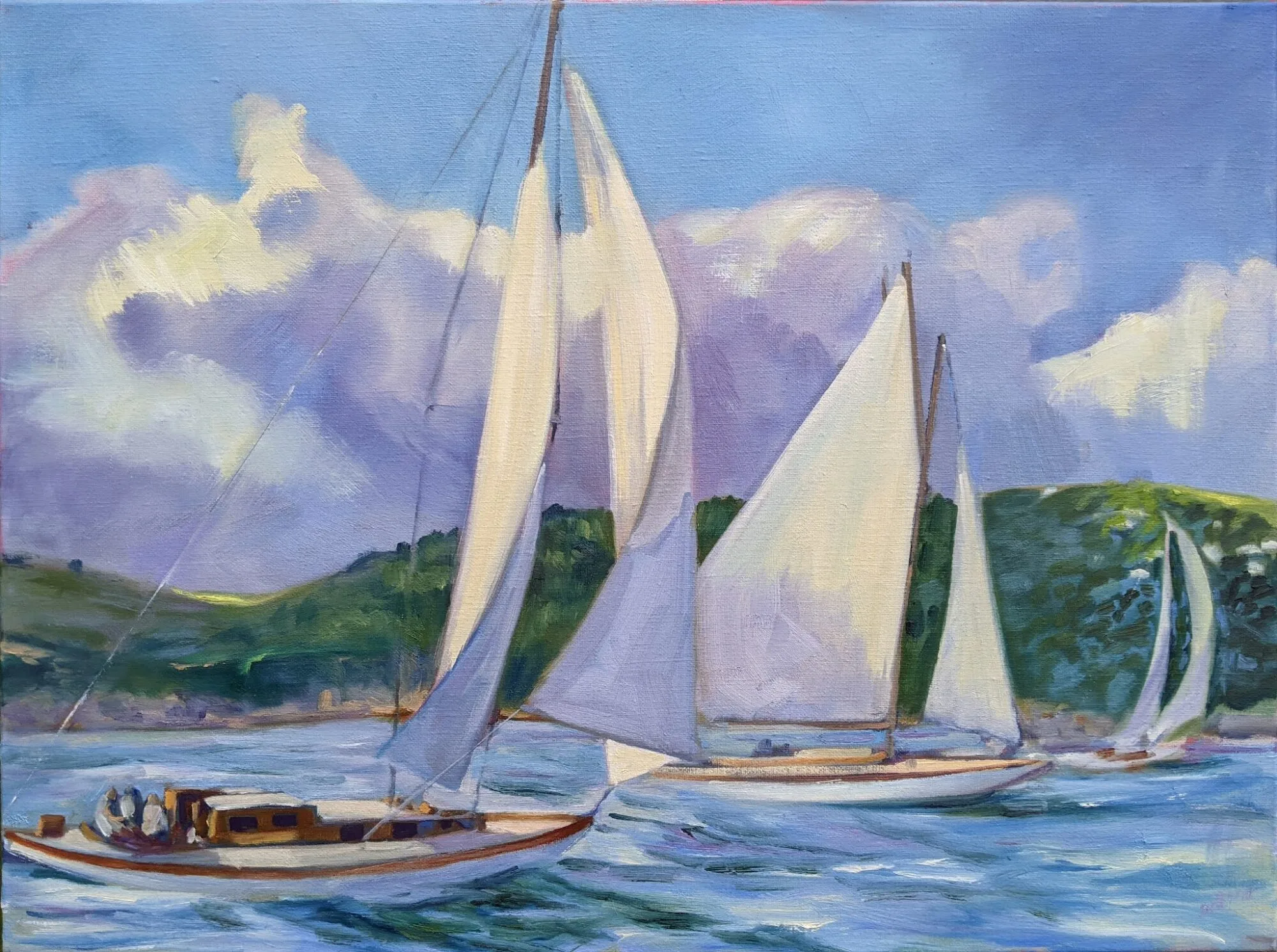Artists get asked for free work constantly. Only do it if you want to support the organization, because there’s no business advantage for you.
 |
| Glade, by Carol L. Douglas, watercolor on Yupo. |
Where are you in this story?
When I first started working as a photographer, I was doing so many jobs for free. Nobody would pay me, but they’d offer dinner. Or drinks. Or publicity. Or experience. Or connections. Or insight. Even though I felt like my work was worth more, I never thought I was in a position to negotiate. I’d become so small when discussing compensation. I’d shrink. I needed everyone to like me. I assumed that if people liked me, they’d respect me. They’d treat me with dignity. They’d value my work. And they’d eventually pay me for it. But instead—they kept asking me back without pay. I think it’s so hard for creators to get out of that cycle, but my mom gave me the best line to use: ‘I’m sorry, but I can’t afford to do that for free.’ I still do free gigs, but only on my terms. Only if they provide value beyond a person’s gratitude. I’m never aggressive or mean. But I’m clear. I’m not sure what I’m worth to them. But I know what I’m worth to myself. And I want it put in writing. I’m still nice about it. I’m still polite. But I’m more dominant. Well, maybe not dominant. Actually, I will say dominant. You can still be dominant and nice.” (Humans of New York)
Every creator has found themselves running through this arc. Photographers and musicians get asked to perform for free, and painters get asked to donate work for fundraisers. It’s a great way to help the world, but it delivers absolutely no business advantage to you.
| Glen Cove, by Carol L. Douglas, oil on canvas |
If I like the organization, I’ll still send a painting, but I’ve also noticed that unless the organization is arts-based, my work often sells for a fraction of its real value. The non-art audience thinks they’re buying the equivalent of décor, and bids accordingly.
For several years, I sent a customized piece to a fisheries-conservation group I really like. My donations consistently sold for about a tenth of their open-market value. Finally, I realized I could help more efficiently by just sending a check.
| The Dugs, Carol L. Douglas, oil on canvasboard |
That’s especially true because of an anomaly in our tax code. My cash donation is completely deductible; my painting donation is not. If I were to donate a painting by another artist, I could take a deduction (with certain limitations), but not for my own work. So, never donate work thinking you’re getting a tax deduction, because you’re not.
At the beginning of our careers, we usually don’t know how much our work is worth. The donation-auction can help create some kind of selling history. But setting your prices based on charity auction prices will keep them artificially low. You’re better off to set them using a repeatable formula.
 |
| Adirondack Spring, Carol L. Douglas, oil on canvasboard. This is going to be auctioned to support the Gerhardt Neighborhood Outreach Center in Rochester, NY, on October 17. |
Having said all that, I have a piece going up for auction to support the Gerhardt Neighborhood Outreach Center in Rochester, NY on October 17. This group provides a medical clinic, help with new babies, holiday baskets and backpacks for kids, transitional housing for women, counseling, vocational training, and a food pantry in one of the city’s bleaker neighborhoods. I’m happy to send them a painting, because I care about their work. If you want to know more about this event, contact Annie Canon here or at 585-288-0030.
